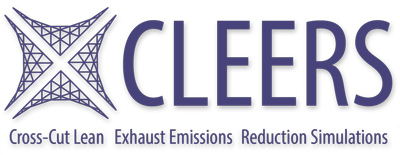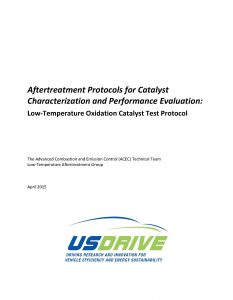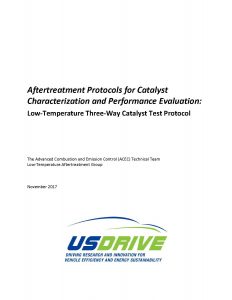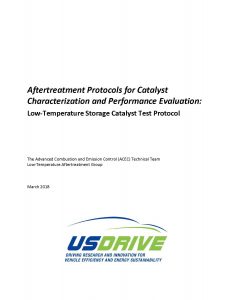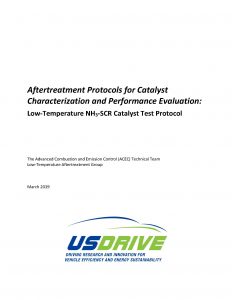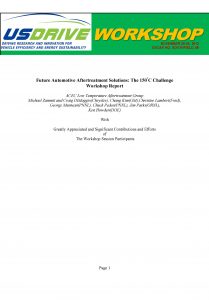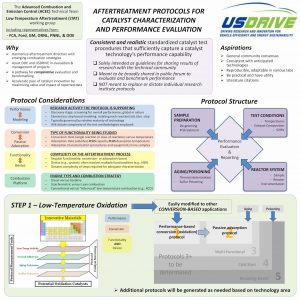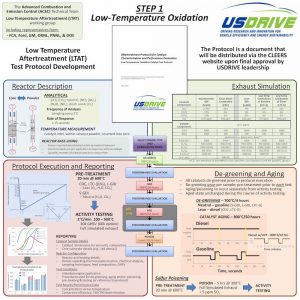To meet enacted future fuel economy standards, the U.S. automotive manufacturers (OEMs) are committed to pursuing a variety of high risk/highly efficient stoichiometric and lean combustion strategies to achieve superior performance. In recognition of this need, the U.S. Department of Energy (DOE) has partnered with domestic automotive manufacturers through U.S. DRIVE to develop these advanced technologies. However, before these advancements can be introduced into the U.S. market, they must also be able to meet stringent emissions requirements. A significant roadblock to this implementation is the inability of current emissions control technologies to provide the required activity at the much lower exhaust temperatures that will accompany highly efficient combustion processes and powertrain strategies. Therefore, a goal has been established by U.S. DRIVE to achieve 90% conversion of emissions below 150°C. A workshop defining a roadmap to achieve this goal was held by the U.S. DRIVE Advanced Combustion and Emission Control (ACEC) Tech Team.
To facilitate technical exchange of research results, the Low Temperature Aftertreatment (LTAT) Working Group of the ACEC Tech Team has developed a “Low Temperature Oxidation Catalyst Test Protocol” to provide a consistent basis for research studies of catalysts and other emission control technologies on synthetic exhaust gas flow reactors.
OEM participants in U.S. DRIVE are also members of the DOE Advanced Engine Crosscut Team, parent organization to CLEERS. Furthermore, the heavy-duty engine and vehicle manufacturers participating in the Crosscut Team face similar challenges with regard to low temperature exhaust emissions control. Therefore, consistent with its mission of fostering collaboration and information sharing across the emissions control community, CLEERS is supporting technical communication of the U.S. DRIVE initiatives in low temperature emission control by hosting the LTAT protocol. A link to the protocol is provided below. In addition, links to the “The 150°C Challenge” Workshop Report and posters on the protocol presented at the 2015 CLEERS Workshop are provided for reference.
The use of this protocol is encouraged for all researchers working in the area of low temperature emissions control to maximize relevance of results.
The Low Temperature Aftertreatment (LTAT) Working Group of the U.S. DRIVE ACEC Tech Team is composed of:
- Craig DiMaggio (FCA US LLC)
- Vence Easterling (FCA US LLC)
- Joe Theis (Ford)
- Se Oh (GM)
- Ming Yang (GM)
- Jim Parks (ORNL)
- Josh Pihl (ORNL)
- Ken Rappe (PNNL)
- Mark Stewart (PNNL)
- Galen Fisher (University of Michigan)
- Ken Howden (DOE)
The LTAT team also acknowledges the technical contributions of: Bruce Bunting (ORNL/PNNL consultant), Chuck Peden (PNNL), George Muntean (PNNL), Chang Kim (GM, currently at Hyundai), Steve Schmieg (GM, retired), Wei Li (GM), and Christine Lambert (Ford).
Protocols
Background Information

